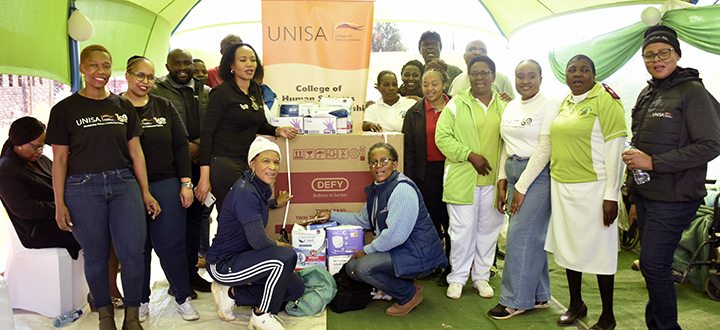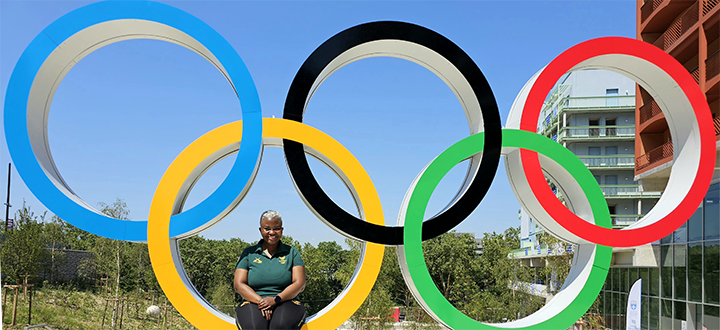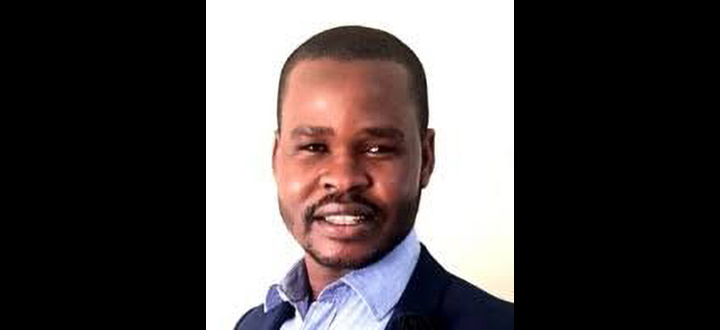College of Human Sciences
Addressing the psychosexual underrepresentation of people with disabilities
Realising that the sexual rights of visually impaired people are underrepresented, Dr Lindokuhle Ubisi, of Unisa’s Department of Psychology under the College of Human Sciences, is keen to address this issue in his upcoming book titled The Psychosexual Experiences of People with Visual Impairment in South Africa.

Dr Lindokuhle Ubisi
Ubisi says that the book will be the first in South Africa to provide the psychosexual development experiences of visually impaired people based on the interviews he conducted with them and their parents and teachers, as well as hostel caretakers. He explains: "In the book, the voices of these participants will provide a lifespan approach to understanding the psychosexual development of visually impaired people."
Ubisi remarks that since sociocultural and medical discourses deem the sexuality of people with disabilities, including visually impaired people, as asexual, disinterested in sex and childless, their sexual lives are perceived as "castrated" and non-existent. "This perception is problematic as these groups desire sexual intimacy and engage in sexual activities," he adds. "Also," Ubisi continues, "they can parent children with their sighted counterparts". However, Ubisi indicates that these accounts are underrepresented in the body of knowledge about visually impaired people, especially within the South African context.
According to Ubisi, the history of disability and sexuality has been unpleasant across the world. He notes: "The eugenics movements in the United States, Canada and Nazi Germany between the 1880s and 1940s resulted in involuntary sterilisations of people with disabilities." He adds: "Even in South Africa, during apartheid laws, for example, the reformation of the Immorality Act of 1927, sexual relations of people with disabilities were criminalised in 1957, denying them sexuality and reproductivity."
Ubisi says that another complication within the African context is that disability and sexuality are hardly ever discussed simultaneously, making the sexual lives of people with disabilities further invisible and worthless. Reflecting on movements such as the Disability Rights of the 1960s, which secured equal rights for people with disabilities, Ubisi states that sexual and reproductive health rights were not prioritised. "Therefore, a sociocultural and medical discourse was created, regarding people with disabilities as genderless, sexless and impotent." Ubisi continues that this discourse made people with disabilities sexually undesirable, seem devoid of any sexual interest and unable to parent children.
For Ubisi, the upcoming book is intended to be a supporting open access resource offered alongside a short learning programme at Unisa. "I recommend it as a teaching and learning resource for parents, teachers, hostel caretakers, psychologists, school nurses and other specialists working in the area of the sexuality of visually impaired people," he says. "Importantly,” Ubisi concludes, "it is dedicated to the general readership of the visually impaired community, and is proposed to be published in January 2024".
#Unisa150
* By Nancy Legodi, Acting Senior Journalist, Department of Institutional Advancement
Publish date: 2023-05-15 00:00:00.0

 Unisans commemorate Mandela Day with the elderly
Unisans commemorate Mandela Day with the elderly
 Unisan appointed psychologist for Team South Africa at the Paris 2024 Olympics
Unisan appointed psychologist for Team South Africa at the Paris 2024 Olympics
 Unisa honours Dr OK Matsepe's enduring legacy
Unisa honours Dr OK Matsepe's enduring legacy
 Great strides towards concretising Unisa-PMC partnership
Great strides towards concretising Unisa-PMC partnership
 Mental health among men in the workplace needs more attention
Mental health among men in the workplace needs more attention